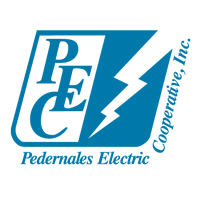
UPDATE: We’ve added a little here and there based on some new information we’ve gotten since first publishing this, specifically some information from NRECA (National Rural Electric Cooperative Association) and Pedernales’ counsel about the effects of converting to SMDs.
Well folks, yesterday marked the beginning of voting for the board of the Pedernales Electric Coop. I’m a proud co-op member, something I couldn’t have said several years ago when the co-op board met behind closed doors and the board nominated its own members. But now we have returned to the principle of democratic control by the member-owners of the co-op, in no small part due to the work of Public Citizen and others.
There’s been a lot of news recently about PEC and Public Citizen’s involvement in the reform effort. We’re not going to comment on that just yet, as we want to keep this focused on the issue at hand, which is the election. Voters across the co-op have the opportunity to vote for two board seats and on a member referendum about future elections and how they should take place.
You can vote in three ways. A ballot should have been mailed to you on Wednesday according to PEC staff. In it you will see that you can vote for candidates in Districts 2 and 3 and on the question of single member districts. You can see videos of each of the candidates at the PEC Candidate Forum online here. We’ll let the candidates speak for themselves on why they should get your vote, as we do not and will not endorse anyone in these races.
However, what’s missing in all of this is a discussion about the pros and cons of single member district voting. Below I’ve attached the presentation we made to board candidates about what we would like to see in the future for PEC. We lay out a broad vision that investing in the future and the key to lower rates is efficiency and renewables. These also just so happen to help things like clean air, create jobs, and use little water in comparison to traditional power generation. We believe that as a co-op, based on the principles of what a cooperative is (as opposed to a private utility or municipal utility), we have a special place in the community to be responsible, ethical, and think about the greater good of our policy choices.
Beware– this presentation is loooooooong, but I wanted to bring attention specifically to the slides about the pros and cons of single member districts. (pgs 15-19)
But in the spirit of transparency we wanted to put the entirety of what we spoke to the board candidates about out there. You know, in case someone publicly accuses you of being a secretive, corrupt cabal that pulls the strings at the co-op.
[scribd id=54650680 key=key-w92e1zwplb1yqkw42rp mode=list]
So, let’s discuss single member districts, or SMDs for short. I’m putting on my political science hat (my Political Science 350: “Theories of Democracy and Democratization” professor would be so proud of me) and let’s talk about what SMDs actually do. I’m personally agnostic about how people should vote on this. I see good sides and down sides to it, but both sides deserve an airing.
But first, what are we voting on? This is how it will appear on the ballot: (more…)
Read Full Post »







